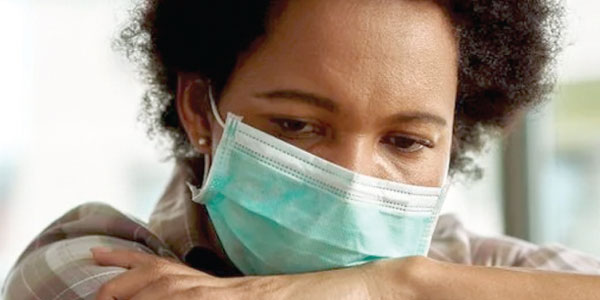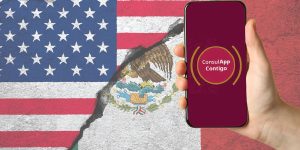
By Chara
A new type of psychological condition has emerged during the COVID pandemic: coronaphobia.
As multiple media outlets have reported, coronaphobia is an excessive fear of getting the COVID-19 virus. Symptoms might include anxiety, avoiding meeting family and friends, and avoiding entering public spaces in ways that hamper a person’s daily life.
Martha Jimenez said she has not been diagnosed with coronaphobia, she is in constant fear of getting sick.
“I’m vaccinated, my family is vaccinated, but I still take my precautions and I get scared of getting sick,” Jimenez said. “When the pandemic started, everything was very difficult. I didn’t want to go out, I didn’t want to touch anyone and I was in constant fear.”
Although Jimenez thinks her fear has decreased, she said she still does not want people to touch her or get close to her.
“I need to go to work and I take all my precautions,” she said. “I’m always washing my hands or using hand sanitizer. I also wear my face mask all the time.”
Jimenez thinks it is normal to feel as she does and does not want to seek professional help.
“My family keeps telling me that I need help, but I don’t think so,” she said.
In the United States alone, there are thousands of people like Jimenez who have been psychologically affected by COVID. Many researchers have stated it is important to help people with coronaphobia, but if they do not want help, it will be difficult to help them recover.
The condition “is treatable,” Dr. Susan Albers-Bowling, a psychologist at the Cleveland Clinic, told Parade.
“You may need cognitive behavior therapy or medication to reduce your anxiety, or you might have another underlying mental health condition that needs treatment,” Albers-Bowling was quoted in the magazine as saying.
Ha surgido un nuevo tipo de condición psicológica durante la pandemia de COVID: la coronafobia.
Como lo reportaron múltiples medios de comunicación, la coronafobia es un miedo excesivo a contraer el virus del COVID-19. Los síntomas pueden incluir ansiedad, evitar reunirse con familiares y amigos y evitar ingresar a espacios públicos de manera que obstaculice la vida diaria de una persona.
Aunque Martha Jiménez dijo que no le han diagnosticado coronafobia, tiene miedo constante de enfermarse.
“Estoy vacunada, mi familia está vacunada, pero igual tomo mis precauciones y me da miedo enfermarme”, dijo Jiménez. “Cuando comenzó la pandemia, todo fue muy difícil. No quería salir, no quería tocar a nadie y tenía miedo constante”.
Aunque Jiménez cree que su miedo ha disminuido, dijo que todavía no quiere que la gente la toque o se le acerque.
“Necesito ir a trabajar y tomo todas mis precauciones”, dijo. “Siempre me lavo las manos o uso desinfectante para manos. También uso mi máscara todo el tiempo”.
Jiménez cree que es normal sentirse como ella y no quiere buscar ayuda profesional.
“Mi familia sigue diciéndome que necesito ayuda, pero no lo creo”, dijo.
Sólo en Estados Unidos, hay miles de personas como Jiménez que se han visto afectadas psicológicamente por el COVID. Muchos investigadores han afirmado que es importante ayudar a las personas con coronafobia, pero si no quieren ayuda, será difícil ayudarlos a recuperarse.
La condición “es tratable”, dijo a Parade la Dra. Susan Albers-Bowling, psicóloga de la Clínica Cleveland.
“Es posible que necesite terapia conductual cognitiva o medicamentos para reducir su ansiedad, o puede tener otra afección de salud mental subyacente que necesite tratamiento”, dijo Albers-Bowling en la revista.









